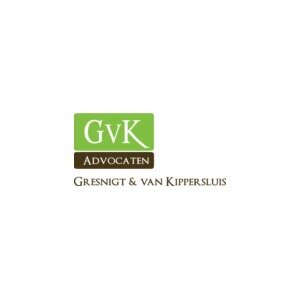Best Licensing Lawyers in Utrecht
Share your needs with us, get contacted by law firms.
Free. Takes 2 min.
List of the best lawyers in Utrecht, Netherlands
About Licensing Law in Utrecht, Netherlands
In Utrecht, as well as other parts of the Netherlands, licenses are often required to conduct certain types of business and activities. These range from running a restaurant to organizing an event, from dealing with alcohol to structuring construction projects. Licenses are administered and enforced by local municipalities, with the goal of ensuring public safety, health, and ethics in managing economic activities. Lack of licensing or non-compliance with these regulations can lead to substantial fines or closure of your business.
Why You May Need a Lawyer
Understanding, obtaining, and maintaining the correct licensing can be complex and time-consuming. For many activities, the detailed requirements and processes could seem labyrinthine. Any error or misunderstanding might lead to non-compliance, potentially leading to serious consequences. Moreover, if you are aggrieved by a licensing decision, you would need substantial knowledge of local laws to appeal against it. A lawyer specialized in licensing law can guide you through these processes, ensure your compliance, and represent you in any disputes or appeals.
Local Laws Overview
Specific regulations vary depending on the type of license needed. However, most licensing laws in Utrecht come under the ambit of the 'General Local Regulations' (Algemene Plaatselijke Verordening). This legislation covers topics like noise pollution, events, and the sale of alcohol. Businesses might also need to comply with the Environmental Management Act (Wet milieubeheer), which regulates issues related to waste, emissions, and other environmental aspects. Unique aspects of Dutch law like the 'Bibob Law' can also affect a company's licensing, where the business may be refused a license if associated with criminal activities.
Frequently Asked Questions
Q1: Which businesses usually require licenses in Utrecht?
A wide array of businesses, including bars, restaurants, construction companies, transport services, and event organizers often require licenses in Utrecht to operate legally.
Q2: How can I apply for a license?
Application processes vary but generally involve filling out the relevant forms and providing requisite information about your business. This is usually done on the municipality's official website or in person at the city offices.
Q3: Can I operate while my license is being processed?
Typically not, most businesses are required to obtain the necessary license before starting their operations.
Q4: What happens if I violate a term of my license?
Violations of licensing rules can lead to fines, license suspension or even termination depending on the severity and frequency of the infringement.
Q5: Can I transfer my license to someone else?
It depends on the type of license. Some can be transferred while others cannot. It's recommended to check this with your lawyer or the local municipality.
Additional Resources
For further information, the official website of Utrecht Municipality provides detailed information about licensing. Organizations like 'Kamer van Koophandel' (Chamber of Commerce), can also provide guidance. In addition, the Dutch Government's official website provides a wealth of information on all aspects of Dutch law, including licensing.
Next Steps
If you need legal assistance with obtaining or managing your licenses in Utrecht, consider consulting with a licensed attorney who specializes in licensing law. They can guide you through the legal complexities, ensuring your business operates within the confines of local laws.
Lawzana helps you find the best lawyers and law firms in Utrecht through a curated and pre-screened list of qualified legal professionals. Our platform offers rankings and detailed profiles of attorneys and law firms, allowing you to compare based on practice areas, including Licensing, experience, and client feedback.
Each profile includes a description of the firm's areas of practice, client reviews, team members and partners, year of establishment, spoken languages, office locations, contact information, social media presence, and any published articles or resources. Most firms on our platform speak English and are experienced in both local and international legal matters.
Get a quote from top-rated law firms in Utrecht, Netherlands — quickly, securely, and without unnecessary hassle.
Disclaimer:
The information provided on this page is for general informational purposes only and does not constitute legal advice. While we strive to ensure the accuracy and relevance of the content, legal information may change over time, and interpretations of the law can vary. You should always consult with a qualified legal professional for advice specific to your situation.
We disclaim all liability for actions taken or not taken based on the content of this page. If you believe any information is incorrect or outdated, please contact us, and we will review and update it where appropriate.








